The Home Cooks of Kosher Kitchens
African American cooks for Jewish families learned kashrut, sometimes Yiddish, and endeared themselves to community. A few went on to become kosher caterers.
Chana Shapiro is an educator, writer, editor and illustrator whose work has appeared in journals, newspapers and magazines. She is a regular contributor to the AJT.
In the first half of the 20th century, skilled African American women worked as cooks in kosher Jewish homes in Atlanta and in neighboring Southern towns, and some of them went on to establish their own successful catering businesses. The cooks used their intelligence, fortitude and skills to build careers as chefs and caterers. With their knowledge and experience as respected kosher cooks in and around Jewish Atlanta, they often had the opportunity to hire, train and educate others who followed in their footsteps.
Here are some of their stories gathered from family members and Atlanta historical archives.
Part of the family
Rabbi Tobias and rebbitzin Sara Hene Geffen of Congregation Shearith Israel in Atlanta from 1910 to 1970. In the late 1920s, African American cook Mamie Smith Walden was hired and soon became an integral member of the Geffen household. She was so closely associated with her prominent Geffen employers, she was widely known as “Mamie Geffen,” and her obituary, singularly unique for an African American cook and caterer, appeared in The Southern Israelite (the forerunner of the Atlanta Jewish Times) in 1976, under the name “Mamie Geffen.”
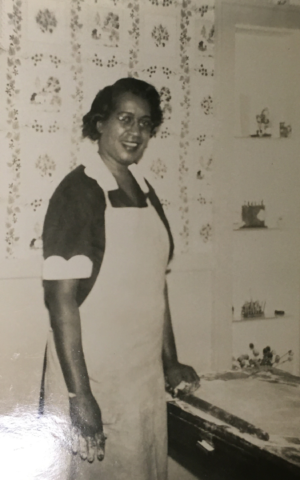
The rebbitzin taught Walden the detailed laws of kosher cooking, and over the years with the Geffen family, she became completely fluent in Yiddish. Later, during the late 1940s and early 1950s, Nellie Peterson, another African American cook, worked for the Geffens, where she mastered the laws of kashrut, along with rudimentary Yiddish.
The Geffens’ grandson Rabbi David Geffen recalled, “My grandmother Sara Hene was very close with Mamie Walden, who conversed with my grandparents in Yiddish. She understood the rules of kashrut, and my grandparents completely trusted her cooking and baking.
“She mastered Ashkenazi culinary classics, including kneidlach, gefilte fish, cheese pie, cheese kugel and blintzes. My great aunt Annette Geffen Raskas’ husband owned a kosher dairy in St. Louis, and he sent the Geffens kosher essentials every month, with which my grandmother taught Mamie to create traditional kosher dairy foods,” David Geffen told the AJT.
“Mamie and Nellie cooked for other kosher families, too, including Rabbi Harry and Riva Epstein of Congregation Ahavath Achim. Even if Mamie had big catering jobs, she helped my grandparents prepare for Pesach.”
Both Walden and Peterson became premier kosher Atlanta caterers, Walden until the late 1970s and Peterson through the 1980s. They were always heavily booked because of their organizational expertise and ability to adapt a “gourmet” menu to kosher standards. Walden even built a separate fully stocked kosher kitchen in her home, where she, who personally observed the laws of kashrut, scrupulously prepared all of her own meals and from which she often catered.
Walden and her sister Katie, who had worked for the Geffens’ daughter-in-law Anna Geffen, went on to train other African American women in kosher cooking. One of them was Sally Hillsman, who also became a caterer.
Congregational Catering
Hillsman was an accomplished disciple of the Waldens and Peterson when she started working with Stanley Birnbaum, whose kosher catering business in the 1980s and ‘90s began as a sideline but soon expanded. In need of an assistant and co-chef, Birnbaum hired Hillsman, who had catered for the Atlanta Jewish Federation and knew how to apply her ethnic Southern-style cooking to Ashkenazi cuisine. Although she had a wide spectrum of admired dishes in her repertory, local lore has it that her kosher fried chicken and fried okra were among the most memorable items served at Birnbaums’ catered events.

Birnbaum was a talented amateur cook who initially began catering for Congregation Beth Jacob celebrations and retreats. When he decided to expand his business, in addition to hiring Hillsman, he often brought her daughters, Jackie and Barbara Jean, to work with them. Hillsman was responsible for selecting and personally supervising a top-notch kitchen staff of African American women, most of whom had some experience in kosher cooking. In addition to events at Beth Jacob, the team of Birnbaum and Hillsman catered for other Atlanta synagogues, including Or VeShalom bond dinners. For many years, they ran kosher events at the elegant Peachtree Plaza hotel in downtown Atlanta, which had a kosher-equipped kitchen. Today African American men and women, mainly trained by Hillsman such as Sherman Goodwin, work for large catering companies and manage kosher events in private homes.
Kosher in Dalton
Jewish families in Dalton, Ga., got their kosher meat from Chattanooga or Atlanta, packed in dry ice and sent on a bus, then picked up and often prepared by home cooks. Esther and Sam Millender, who moved to Dalton as newlyweds in 1930, employed Catherine Wofford as cook and housekeeper from the 1940s to the 1970s. Esther and her mother taught Wofford the rules and recipes of kosher cuisine; however, Wofford was so respectful of the kosher laws and traditions that she would not cook in their kitchen unless Esther or Esther’s mother was present.
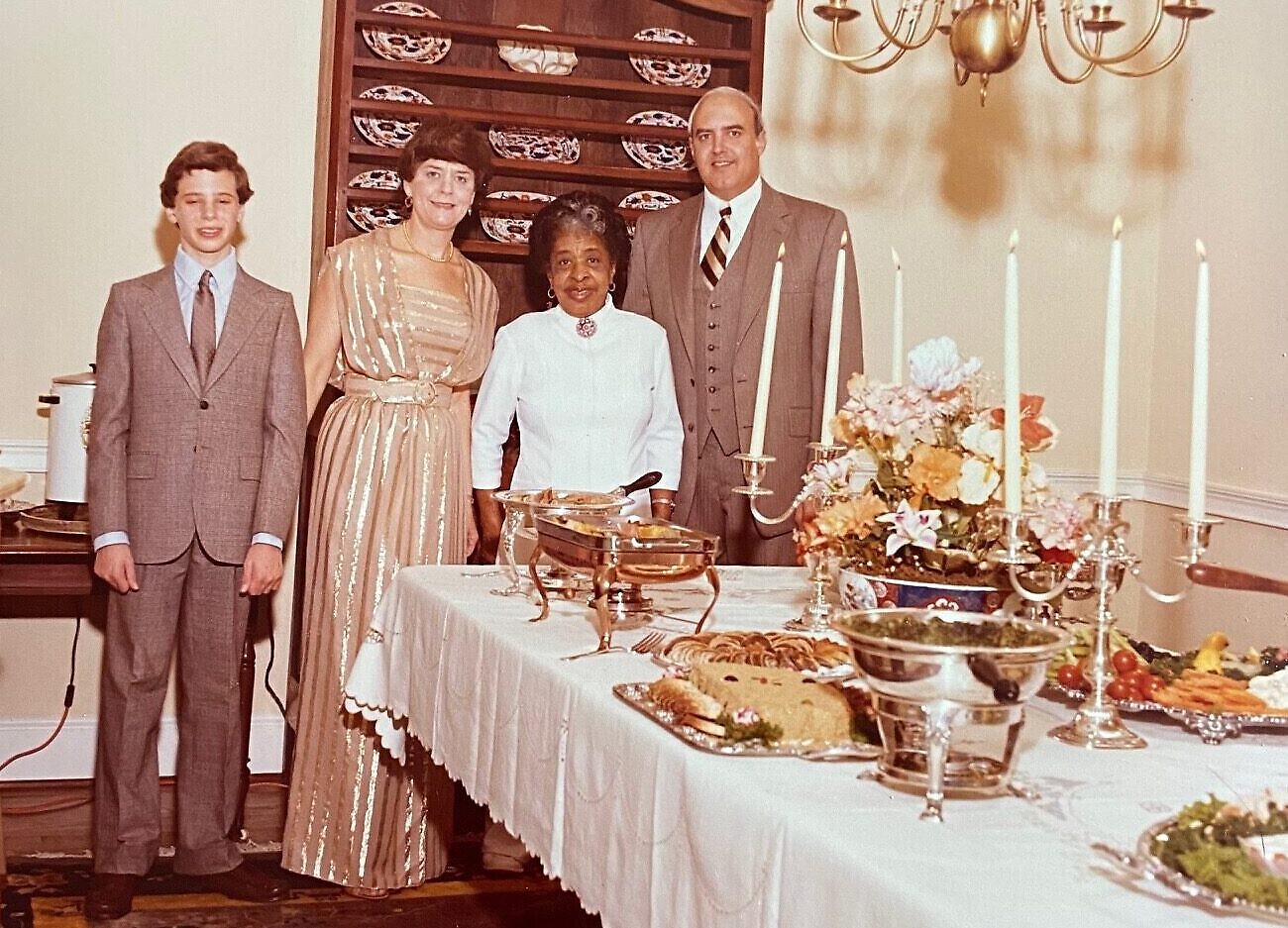
At Temple Beth-El in Dalton, under the watchful eye of congregational women, local African American women served as kosher cooks for events held in the social hall. The most memorable of these women was India Harris. She reigned supreme in the synagogue kitchen with her hand-picked assistants. Her culinary presentations were elegant and elaborate, and India had to be booked to cater events well in advance. Jewish families depended on her to arrange bar and bat mitzvah receptions, holiday dinners and other celebrations. She was stylish, dignified and greatly respected.
The Millenders’ son Ivan noted, “There was a ‘pecking order’ among the network of the African American ‘kosher specialists.’ It’s likely that most of the cooks spoke and understood some Yiddish. I was told that the reason the Jewish families had the finest cooks in town was that our families paid them better than the non-Jewish ones. I’m sure that’s true.”
- Then & Now
- Chana Shapiro
- Cooks
- Food
- jewish community
- Kosher
- catering
- jewish atlanta
- Rabbi Tobias
- Sara Hene Geffen
- Congregation Shearith Israel
- The Southern Israelite
- Yiddish
- kashrut
- Rabbi David Geffen
- kosher dairy
- Ashkenazi
- Anna Geffen
- Sally Hillsman
- Atlanta Jewish Federation
- Congregation Beth Jacob
- Dalton
- Peachtree Plaza hotel
- Or VeShalom
- Temple Beth El



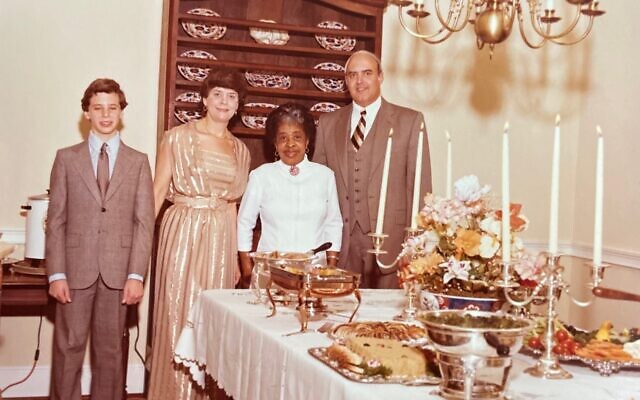
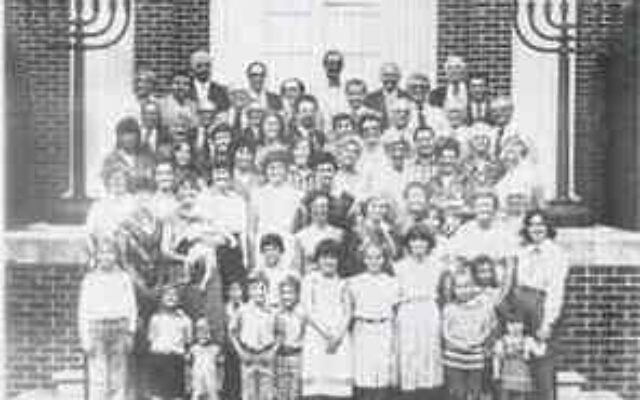
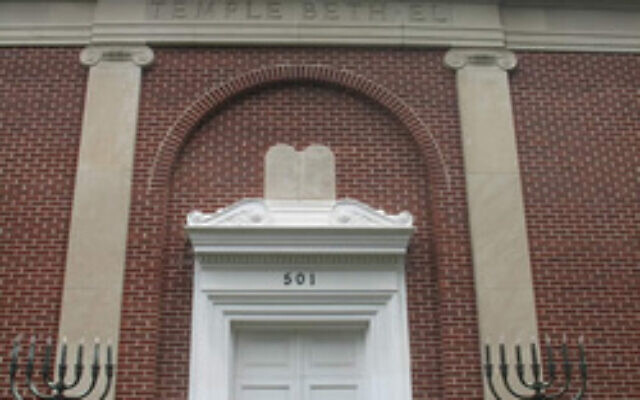
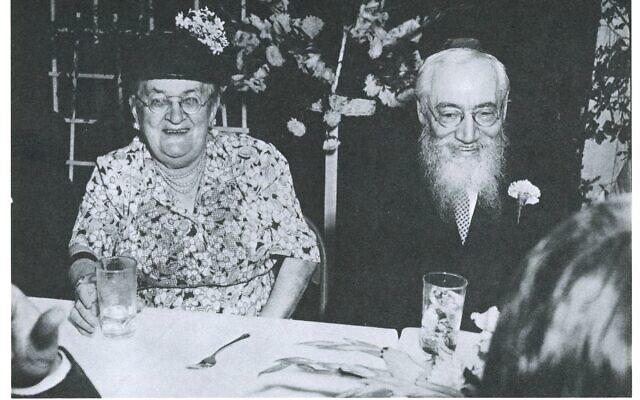
comments